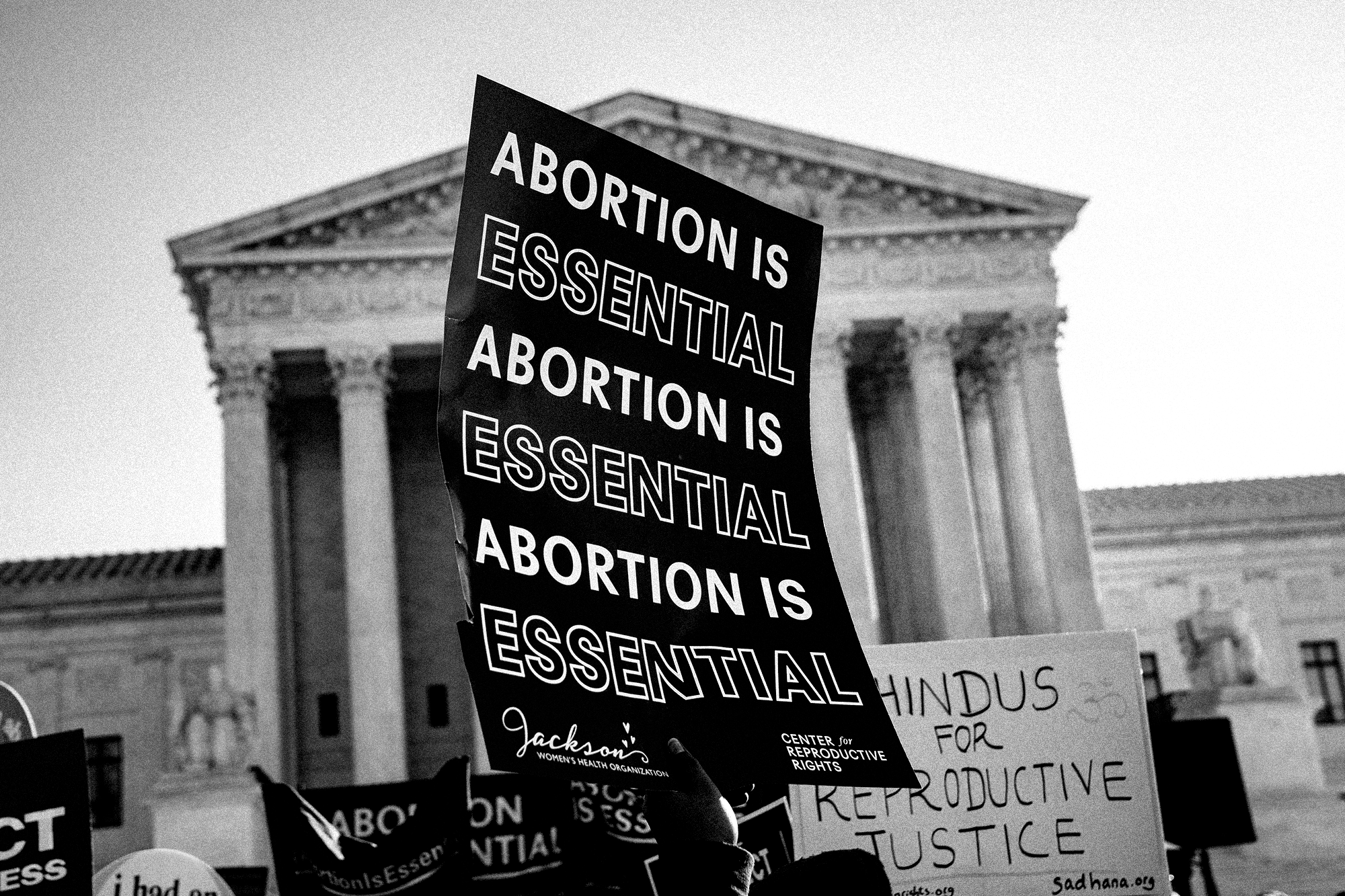As questions endure about the electability and the competency of the two leading candidates for president, Joe Biden and Donald Trump, No Labels—a group that has pitched itself as a bipartisan band intent upon propping up a third-party candidacy with a “unity ticket” in 2024—seems to be adopting—if quietly—the latest Republican position du jour on abortion. The group’s position, tacitly endorsing a 15-week ban, has furthered the criticisms that they are a Republican stalking horse pitching unity but actually resolved to prove a spoiler to a Biden ticket.
Since its inception, No Labels’ stance has been that Americans are sick of bitter partisanship and should have more options. In 2010, according to Slate, the group’s website posited that social issues like gay marriage and abortion “keep Americans from working together” and that it wanted “to help call a cease-fire in the culture wars by focusing on common ground goals rather than absolutist positions on the left or right.”
But, today, No Labels doesn’t seem to be ignoring those so-called wedge issues at all. David Brooks listed some of them in a column for The New York Times last year, including "no guns for anyone under 21 and universal background checks” and “moderate abortion policies with abortion legal until about 15 weeks.”
In July, the group published a policy booklet describing their approach to addressing the country’s most contentious issues. The phrasing is purposefully fuzzy. At first, they note that most abortions happen before 15 weeks, helping the argument that many Republican members have propped up as a “consensus” position on abortion. Then, they remark that Americans will not find a compromise on this issue until there’s a leader in office who navigates the issue with empathy and respect: “Abortion is too important and complicated an issue to say it’s common sense to pass a law—nationally or in the states—that draws a clear line at a certain stage of pregnancy.”
(In a statement to Vanity Fair, a spokesperson for No Labels said that the the group has never taken a position regarding a 15-week ban on abortion.)
Republicans, including Virginia governor Glenn Youngkin, former vice president Mike Pence, head of the Republican National Committee Ronna McDaniel, and failed presidential hopeful Tim Scott, among others, have taken up the 15-week stance. However, some antiabortion advocates have said that particular rhetoric has not helped the cause. “Talking about 15 weeks was incorrect,” Olivia Gans Turner, president of the Virginia Society for Human Life, an antiabortion group, said, according to a Politico report. “It became about the weeks, not about the ability of the unborn child to feel pain.”
“It’s kind of no shock that No Labels is pushing an antiabortion agenda considering they are being run by a lot of Republicans with a vested interest in pushing an antiabortion agenda,” Alexandra De Luca, the vice president of strategic communications at American Bridge 21st Century, a progressive and Democratic research group, told Vanity Fair. Indeed, the group’s leadership includes Republicans Larry Hogan and Pat McCory, plus former Democrat turned independent Joe Lieberman. Notably, the politicians No Labels has propped up include Jon Huntsman and Joe Manchin. When Huntsman served as the Republican governor of Utah, he signed multiple pieces of antiabortion legislation. Manchin, meanwhile, has had a mixed record on abortion. He was the sole Democrat to vote alongside the entire Senate Republican caucus against the Women’s Health Protection Act, which would have enshrined the right to abortion nationwide as well as providing other reproductive rights protections. However, Manchin did say he would vote on a narrower codification of *Roe—*a position seemingly at odds with No Labels’ “compromise” ban, emphasizing the clumsiness of the group’s goals.
Democratic wins in Ohio and, ostensibly, Virginia, Kentucky, and Pennsylvania this November have proved that abortion access is a motivating issue for voters. Reproductive rights advocates are also quick to argue that a 15-week ban is medically arbitrary, and it would just serve as a starting point for Republicans intent on banning abortion outright. No Labels has argued that a third-party ticket could siphon off enough votes from both parties to be a viable alternative. But polling only partially bears this premise out. Instead, a No Labels candidate would likely hurt Biden and help clear Trump’s path to the White House.
While the White House has remained largely mum on No Labels’ mission, behind closed doors, it appears the effort is causing much angst within some Democratic circles. “What we hear universally from Democrats is deep concern about this,” said Matt Bennett, the executive vice president of public affairs at Third Way, a moderate Democratic think tank that has come out in opposition of a third-party candidacy.
Bennett added in the July interview with Vanity Fair, “We have not encountered a single Democrat who doesn’t think this is bad, other than, you know, Senator Manchin himself, basically,”—a reference to the moderate West Virginia senator who earlier this year headlined a No Labels event and whose recent decision not to seek reelection amplified existing speculation that he might run third party for president. Even Representative Dean Phillips, a vocal advocate of widening the Democratic presidential primary field before he announced his own bid, told VF this summer that anyone running third party—such as Cornel West and Robert F. Kennedy Jr.—“Those people are absolutely helping Trump.”
Former Michigan congressman Fred Upton, a Republican working with No Labels, seemingly said the quiet part out loud earlier this month. “I’d like to think that we’d have a Republican presidential candidate and a Democratic vice presidential candidate.”
This post has been updated to include a statement from No Labels.
Vanity Fair’s Most Read Stories of 2023
The Real Housewives Reckoning Rocking Bravo
The Untold Story of Lost’s Poisonous Culture
Kyle Deschanel, the Rothschild Who Wasn’t
The JFK Assassination Revelation That Could Upend the “Lone Gunman” Theory
Gisele Bündchen Talks About It All
The Serial Killer and the Texas Mom Who Stopped Him
Plus: Fill Out Your 2023 Emmys Ballot

